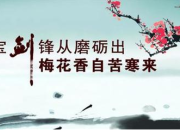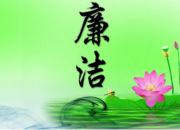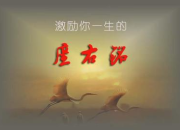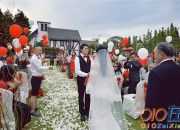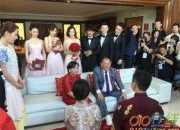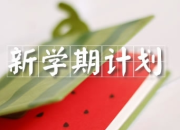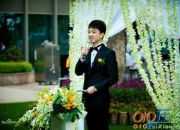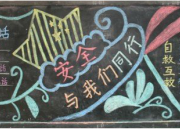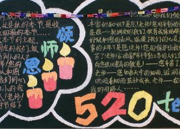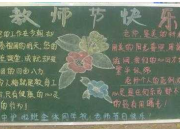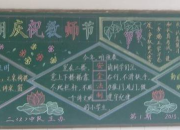超市元旦策划活动优秀方案
时间:2021-08-31超市元旦策划活动优秀方案
导语:元旦,即世界多数国家通称的“新年”,是公历新一年的第一天。元,谓“首”;旦,谓“日”;“元旦”意即“首日”。“元旦”一词最早出现于《晋书》,但其含义已经沿用4000多年。以下是小编整理超市元旦策划活动方案的资料,欢迎阅读参考。
一: 圣诞元旦部分
1.某超市元旦策划活动方案
一、活动时间:
12月31日(星期日) ——元月3日(星期三)(4天)
二、活动主题 :
缤纷元旦 欢乐送礼
▲活动一:缤纷元旦 8折酬宾
购穿着及针纺类商品享全场8折。羽绒服、化妆品、照材、数码产品、小家电全场9折火爆酬宾热卖。
注:(超市、手机、名烟酒、黄白金、特价、削价商品不参加打折活动)
▲活动二:元旦灯谜会—— 猜谜获奖乐翻天
活动期间,新世纪推出“元旦灯谜大街”,顾客无需购物即可买免费参加猜谜活动,猜的越多,赢得越多。
领奖办法:猜中5个领奖一份。总服务台领奖(赢4.99元的可口可乐一瓶)
采购部负责组织活动赠品500-1000份。
▲活动三: 缤纷元旦庆 超市大行动
【超低价 买大米】
活动期间,超市大米超低价热卖,每斤1.39元。
【投色子 赢鸡蛋】
超市购物单张小票满38元,可凭电脑小票投色子一次,满76元投色子二次,并根据自己所投的点数为准,获得与点数相同的鸡蛋。
企划部准备大色子一个,直径800×800(白色红字)
超市准备好鸡蛋,在超市出口处参加活动。现场送鸡蛋。
三、气氛布置及广告宣传:
1.dm邮报10000张8开2页4版 急定印刷28号发行
2.手机短信100000条。
3.电视台、气象局广告。
4.企划准备灯谜的内容。布置灯谜大街(一楼服务台东走廊、二楼)
5.二楼三楼电梯入口柱子用满100送 活动内容写真装饰
6.a2广告架支撑活动版面10个(一楼4个,二楼2个,三楼2个,四楼2个)
7.一楼南门装饰元旦氛围,大活动版面2块。
8.临沂发货采购注水旗杆20套,制作布旗,放置楼前营造氛围
9.过大年背景做超市出口入口及超市内立体版面悬挂。超市出口1个,超市入口1个,超市内写真悬挂40套,(写真、泡沫板、kt板制作)费用XX元已交。
延伸阅读:
The origin of change
On New Year's day, zhuanxu, which is said to be one of the five emperors, has a history of more than 4,000 years. The word "New Year's day" first appeared in "the Book of Jin" : "it was the first month of menxia, and actually the spring of New Year's day. "
In the southern and northern dynasties, there was a record in the poem "jie ya" by xiao ziyun, a historian of the southern dynasty. In the song dynasty, wu's "dream of the reentry" is about: "the first lunar month, the New Year's day, the custom calls for the New Year. The first one is the first one. The recorded.
Han dynasty cui been reflected in "the third women of inscription" called "yuan", jin dynasty YuChan "Yang du fu" a FuZhong called "magic", at the time of beiqi "song yuan will great imperial summer" as a call for "yuan spring", one - the commission "ganjitsu back toward the concept of military battle to camp" calling "yuan new moon" is a poem.
New Year's day in China refers to the first month of the lunar calendar. The calculation method of the first month was also very inconsistent before the han dynasty. Therefore, the New Year's day and the day are not the same. The summer calendar of the xia dynasty is the month of mengxi moon (January), the shang dynasty (December) is the first month, and the zhou calendar in the zhou dynasty (November) is the first month. After emperor qin shihuang unified China, it was the first month of October, the first month of October.
From the han dynasty, it was established that mengxi moon (January) was the first day of the month, and the first day of the month of mengxi (the first day of the first month of the summer calendar) was called New Year's day.
In 1911, the 1911 revolution led by sun yat-sen overthrew the qing dynasty and established the republic of China. The representatives of the provincial governors met in nanjing to decide to use the Gregorian calendar. The January 1 of the lunar calendar was called "Spring Festival" and the Gregorian calendar was called "New Year's day" on January 1, but it was not officially announced at the time.
Line in order to "summer is so suitable season, from the western, so statistics", decided to use a calendar of the first year of the republic of China (the actual use is 1912), and the Gregorian calendar January 1 as "New Year", but it is not called "New Year's day".
On September 27, 1949, the first session of the Chinese people's political consultative conference, at the same time of the decision of the People's Republic of China, also decided to adopt the general of the common law, which was known as the Gregorian calendar. New Year's day refers to the first day of the western yuan calendar year.
For the difference between two New Year the lunar and solar calendar, and in view of the lunar 24 solar terms of "spring" just around the lunar New Year, therefore the lunar calendar January 1st renamed the "Spring Festival", the Gregorian calendar on January 1 as the New Year began - "New Year's day", and in legal holiday, become a national holiday.
Experts: the term "New Year's day" has been used in China for more than 4,000 years.
January 1 every year marks the arrival of the New Year, which is used to refer to the day as "New Year's day", commonly known as "the year of the Gregorian calendar".
Astronomical experts said, the word "new" is China's "native", has been in use for over 4000 years in the Chinese lunar calendar, but the current Gregorian calendar "New Year" for 1949, with the coming of 2016, it is "67".
起源变化
元旦,据说起于三皇五帝之一的颛顼,距今已有4000多年的历史。 “元旦”一词最早出现于《晋书》:“颛帝以孟夏正月为元,其实正朔元旦之春。 ”
南北朝时,南朝文史学家萧子云的《介雅》诗中有“四季新元旦,万寿初春朝”的记载。宋代吴自牧《梦粱录》中有关于:“正月朔日,谓之元旦,俗呼为新年。一岁节序,此为之首。”的记载。
汉代崔瑗《三子钗铭》中叫“元正”、晋代庾阐《扬都赋》一赋中称作“元辰”、北齐时的《元会大享歌皇夏辞》一辞中呼为“元春”、唐德宗-李适《元日退朝观军仗归营》一诗中谓之“元朔”。
中国元旦历来指的是夏历(农历、阴历)正月初一。正月初一的`计算方法,在汉武帝时期以前也是很不统一的。因此,历代的元旦月、日也并不一致。夏朝的夏历以孟喜月(元月)为正月,商朝的殷历以腊月(十二月)为正月,周朝的周历以冬月(十一月)为正月。秦始皇统一中国后,又以阳春月(十月)为正月,即十月初一为元旦。
从汉武帝起,规定孟喜月(元月)为正月,把孟喜月的第一天(夏历的正月初一)称为元旦,一直沿用到清朝末年。
公元1911年,孙中山领导的辛亥革命推翻了满清的统治,建立了中华民国。各省都督代表在南京开会决定使用公历,把农历的1月1日叫做“春节”,把公历的1月1日称为“元旦”,不过当时并没有正式公布。
为了“行夏正,所以顺农时,从西历,所以便统计”,民国元年决定使用公历(实际使用是1912年),并规定阳历1月1日为“新年”,但并不称为“元旦”。
1949年9月27日,第一届中国人民政治协商会议,在决定建立中华人民共和国的同时,也决定采用世界通用的公元纪年法,即我们所说的阳历。元旦,指西元纪年的岁首第一天。
为区别农历和阳历两个新年,又鉴于农历二十四节气中的 “立春”恰在农历新年的前后,因此便把农历一月一日改称为“春节”,阳历1月1日定为新年的开始――“元旦”,并列入法定假日,成为全国人民的节日。
专家:“元旦”一词系中国“土产” 已经沿用4000多年。
每年1月1日,标志着新一年的到来,人们习惯将这一天称为“元旦”,俗称“阳历年”。
天文专家表示,“元旦”一词系中国“土产”,在中国农历中已沿用4000多年,但现行公历“元旦”为1949年所定,随着2016年的到来,它只有“67岁”。
【超市元旦策划活动优秀方案】相关文章:
3.超市元旦活动方案
